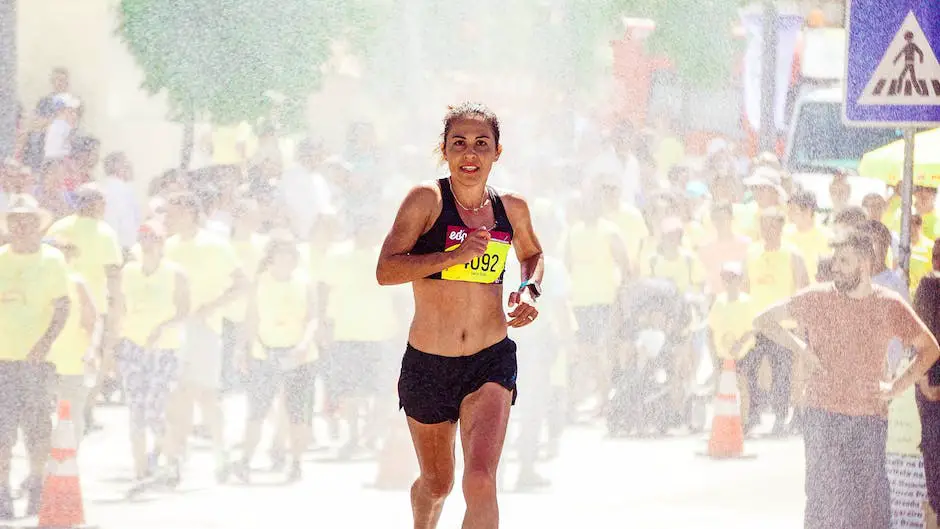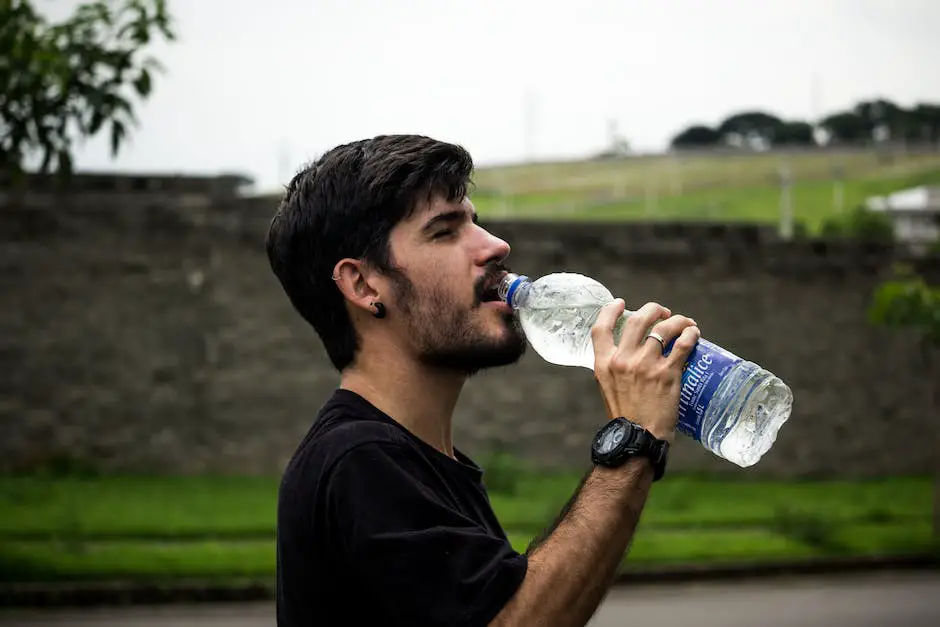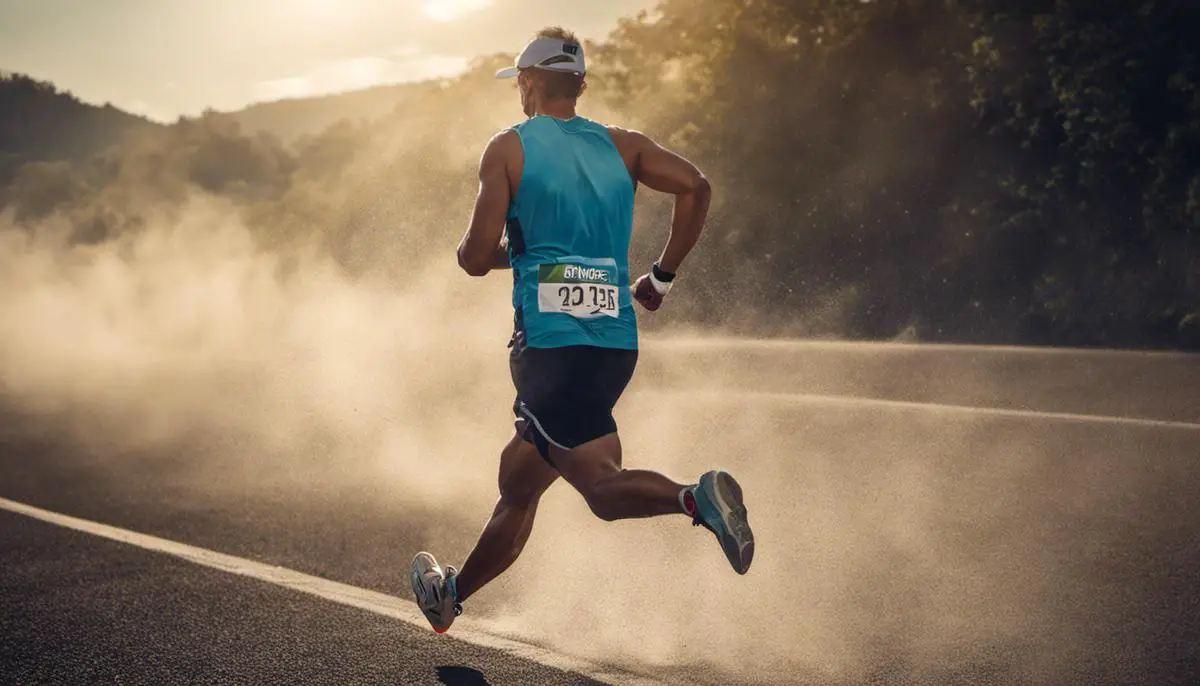Hydration stands as a cornerstone not only for achieving your marathon goals, but also preserving your health during the rigorous test of endurance. As the miles stretch before you, uncounted liters of water are spent to keep the body functioning at an optimal level, from cooling the active muscles to maintaining blood volume. Dehydration, even a minor one, could have serious implications on your marathon run, hampering your pace and possibly posing health risks. Therefore, to optimize your performance and well-being, understanding hydration needs during a marathon is imperative. This understanding includes knowing your unique hydration quantity – dictated by multiple factors such as climate, your weight, fitness level, running speed, and sweat rate – as well as the effective hydration strategies to implement.
Understanding the Need for Hydration
The Role of Hydration in Marathons
Proper hydration is a key component to performance and safety during marathons. The human body comprises about 60% water, which plays a crucial role in maintaining normal body functions. Water is essential for regulating body temperature, transporting nutrients, and lubricating joints. During physical activities, such as running, the body heats up. To cool down, the body produces sweat, which evaporates and reduces body temperature.
Risks Associated with Dehydration
Dehydration occurs when more water is lost than is taken in. This results typically from extreme physical exertion, like running a marathon, without adequate water consumption. Dangers of dehydration can be mild to severe, starting with declined performance and advancing to heatstroke.
Reduced endurance, increased fatigue, decreased coordination, and muscle cramping are early signs of dehydration. These can significantly hinder a runner’s performance during a marathon. As dehydration progresses, it may lead to heat exhaustion, a condition characterized by rapid pulse, cool moist skin, and dizziness. It is a potentially fatal condition if not promptly addressed with rehydration and cooling measures.
Importance of Water Intake During Marathons
Water intake before, during, and after a marathon is essential to prevent dehydration and maintain optimal body functions. The American College of Sports Medicine (ACSM) suggests that athletes should drink approximately 500ml of fluid two hours before a marathon to promote adequate hydration and allow time for excretion of excess ingested water.
During the race, the ACSM recommends drinking at regular intervals to replace all the water lost through sweat. This can be challenging to gauge, as the amount of sweat produced varies from person to person and depends on environmental conditions like temperature and humidity. However, a rough guideline is to drink about 100-200ml of water every 15-20 minutes during a marathon.
Post marathon, rehydration is crucial to recover from the fluid losses. It is generally recommended to drink 450-675ml of fluid for every 0.5 kg of body weight lost.
Remember that over-hydration, or hyponatremia, is also a risk if too much water is consumed, diluting the body’s sodium levels. Therefore, it’s essential to balance hydration, maintaining electrolyte levels by consuming sports drinks when appropriate alongside water.
<cite>By understanding the role of water and the dangers of dehydration, marathon runners can better prepare for their races and ensure they remain healthy and perform to the best of their ability.</cite>

Measuring Your Hydration Needs
Understanding the Importance of Hydration During Marathons
Running a marathon places a significant strain on your body, requiring a precise balance of energy, hydration, and electrolyte management. Lack or excess hydration can equally be detrimental to your performance and health.
Analyzing Your Hydration Factors
Before calculating your hydration needs, you must first evaluate several factors that will impact your hydration during a marathon. These are your weight before and after running, the climate you’re going to run in, your level of fitness, your running speed, and your sweat rate.
Calculating Your Weight Loss
The first step to preparing for appropriate hydration during a marathon is to determine your sweat rate, which can be done by calculating your weight loss during a run. First, weigh yourself before a one-hour training run. Then, after training, towel off any sweat and weigh yourself again. Each pound lost equates to approximately 16 fluid ounces of water.
Identifying Your Climatic Impact
Understanding the climate you’ll be running in is crucial as it directly impacts your sweat rate and therefore your hydration needs. In hot or humid weather, you tend to sweat more, thus needing more fluid intake. Conversely, in cold climates, you may require less.
Assessing Fitness Level and Running Speed
Your level of fitness and speed at which you run can influence how much you sweat, and consequently, how much you need to drink. Faster runners may generate more heat leading to increased sweat and thus a higher water intake may be required.
Determining Your Individual Sweat Rate
Once you have accounted for climate, weight loss during running, and your running speed, you can figure out your individual sweat rate. Divide your weight loss (in ounces) by the duration of your run (in hours) to get your sweat rate (ounces per hour).
Formulating Your Hydration Strategy
In general, you should aim to replace at least 75%-100% of your sweat loss during a marathon. However, keep in mind that hydration involves not only water but also electrolytes which are lost during excessive sweating. A sensible approach is to have sports drinks containing roughly 4%-8% carbohydrates and a small amount of electrolytes.
Remember, these calculations provide a starting point. Regularly monitor your body’s responses, tweaking fluid intake as necessary during training. Also, consult with a healthcare provider or a sports dietitian to ensure your hydration strategy is safe and optimal for your personal needs.

Effective Hydration Strategies
Pre-Race Hydration: Setting Yourself Up for Success
One to two days before the marathon, begin proactive hydration to ensure that you start the race in an optimally hydrated state. Aim to intake daily at least half your body weight in ounces of water. For example, if you weigh 150 pounds, drink at least 75 ounces of water per day.
Recognize the Symptoms of Dehydration
Knowing when your body is under-hydrated can greatly improve your marathon performance. Signs of dehydration include dry-mouth, faster heartbeat, headaches, dizziness, and fatigue. If you start to experience any of these symptoms, it’s crucial to start hydrating immediately.
Creating a Drinking Schedule for the Race
During the marathon, it is crucial to have a consistent fluid intake. A common strategy is to consume about 4 to 6 ounces of fluids every 20 minutes during the race. This frequency can keep you adequately hydrated without causing discomfort from over-hydration.
Using Sports Drinks to Your Advantage
Sports drinks are designed for situations exactly like marathons. They contain not only water but also electrolytes and carbohydrates. These components help replenish electrolyte levels in your body, prevent cramps, and provide energy. Aim to alternate between sports drinks and water during the marathon to achieve a balance of hydration and electrolyte replenishment.
Post-Race Rehydration: Recover and Replenish
After the race, rehydration is crucial. The recommended approach is to consume 16-24 ounces of fluid for every pound lost during the marathon. Post-race rehydration includes not only fluid intake but also food, especially those high in water content, such as fruits and vegetables. This helps your body recover and replenish the nutrients lost during the race.
Listen to Your Body
Finally, it is very important to listen to your body. Every individual is different. What works for another runner might not work for you. A strategy that maps out pre-race hydration, mid-race drinking schedules, sports drinks, and post-race rehydration is the foundation but tweak and adjust this plan to best suit your specific needs and responses during your long run.

Hydrating well for a marathon isn’t as simple as chugging a couple of water bottles moments before you hit the track. It requires a series of strategic decisions such as pre-race hydration, adhering to drinking schedules during the race, wisely using sports drinks to replenish lost electrolytes, and rehydrating post-race for a quick recovery. All these steps need to be customized according to your unique needs dictated by the individual variants of climate, run speed, sweat rate, weight, and fitness level. After all, an effective hydration strategy for a marathon is not just about staving off thirst but it’s an intricate dance of sustaining optimal body functions and warding off health risks, all aimed at propelling you through the finish line stronger.
